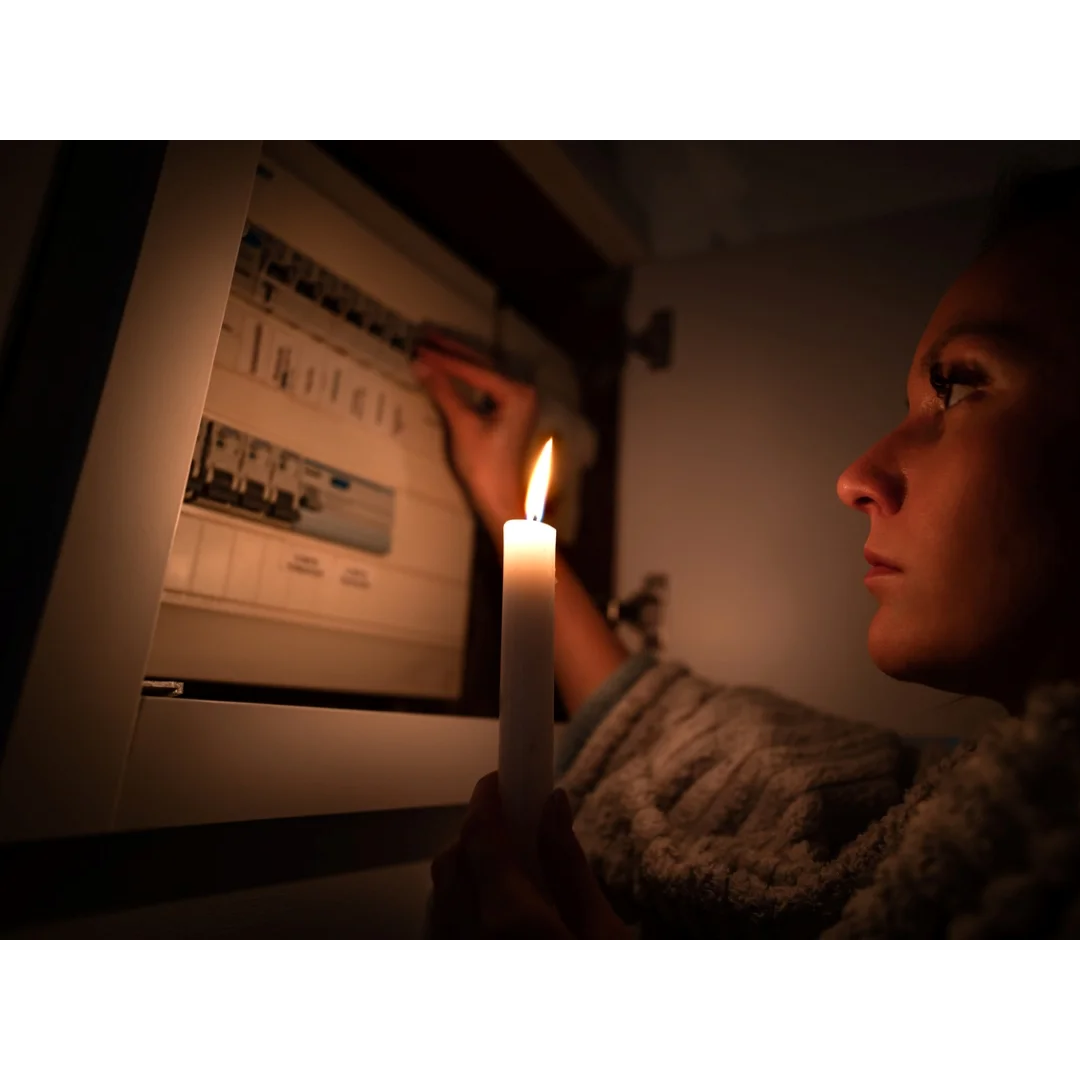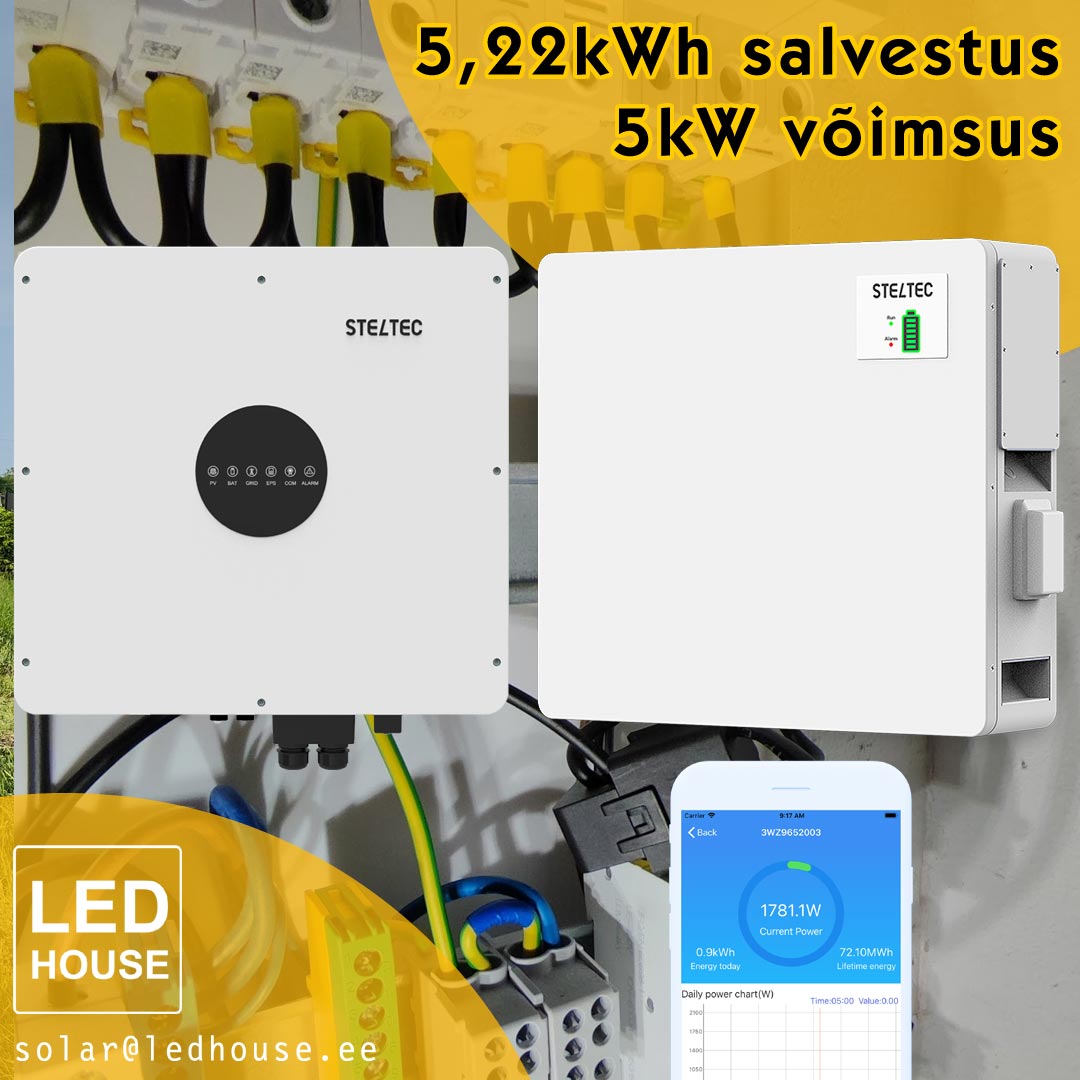When the Lights Go Dark: What to Do in a Power Outage
Over the weekend, several households experienced power outages, causing inconvenience and, understandably, some fear.
Electricity has become a convenience we can't imagine our lives without in this day and age. We rely on it for lighting, heating, cooling, water systems, household appliances, and communication devices. But it goes beyond that. In addition to losing home comforts during a power outage, automatic gates and barriers may remain closed, fueling may be disrupted, card payments in stores can be affected, and food preservation can become a concern.
With colder weather approaching, it's wise to be prepared for power outages, as autumn storms become more frequent, and dropping temperatures can turn even a brief power outage into a potentially hazardous situation.
Electricity has become a convenience we can't imagine our lives without in this day and age. We rely on it for lighting, heating, cooling, water systems, household appliances, and communication devices. But it goes beyond that. In addition to losing home comforts during a power outage, automatic gates and barriers may remain closed, fueling may be disrupted, card payments in stores can be affected, and food preservation can become a concern.
With colder weather approaching, it's wise to be prepared for power outages, as autumn storms become more frequent, and dropping temperatures can turn even a brief power outage into a potentially hazardous situation.
How to Prepare for a Power Outage?
Following these instructions will make you better prepared for the next power outage!
- Have battery-powered lights in your home, including flashlights and headlamps. Keep them in a place where you and your family members can find them in the dark.
- Use solar or wind energy systems.
- Stock up on enough supplies at home to be self-sufficient for a week. Due to a prolonged power outage, stores, pharmacies, and gas stations may be closed.
- Understand the effects of power outages in your home and consider alternative solutions. If you depend on centrally organized services (central heating, natural gas, public water and sewage, etc.), check with service providers, the housing association, or the local municipality to see if and for how long these services will continue to operate in the event of a power outage.
- Ensure that you can manually open doors and gates that rely on electricity. Keep keys in a secure place for quick access when needed.
- Connect security and alarm systems to an uninterruptible power supply (UPS).
- Understand what power capacity and solutions can be safely used in your home (such as a water pump, heating device, electric generator, solar panels, batteries, UPS, and batteries, etc.).
Note: An electric generator should not be used indoors unless it is installed in a specially designed room with exhaust fumes vented outside. An electric generator is suitable for use in a single-family home and the entire apartment building. (Source: olevalmis.ee)
Stay Ready, So You Don't Have to Get Ready!
What can be used in a sauna house or summer cottage?
With the help of LED House, you can maintain your everyday comforts. You can find uninterrupted solutions from 5kWh to megawatt kWh.
5.22kWh battery.
With this capacity, you can use these devices for a certain period, for example:
- 26 hours of a 200W refrigerator
- 13 hours of a 400W washing machine
- 4.35 hours of a 1200W dishwasher
- 5.22 hours of a 1000W electric stove
- 6.5 hours of an 800W microwave oven
- 4.35 hours of a 1200W kettle
- 52.2 hours of 100W lighting, such as 20 LED lights at 5W each
- 104 hours of a 50W television
- 17.4 hours of a 300W computer
Please note that this solution can be used with or without solar panels. When used with solar panels, the batteries can be recharged using solar power.


